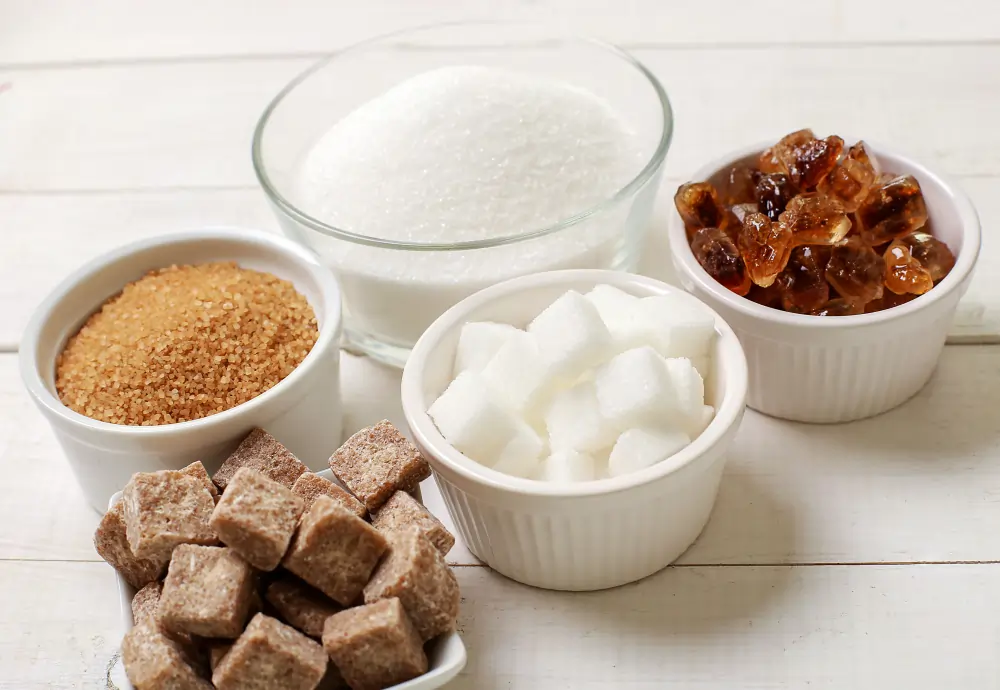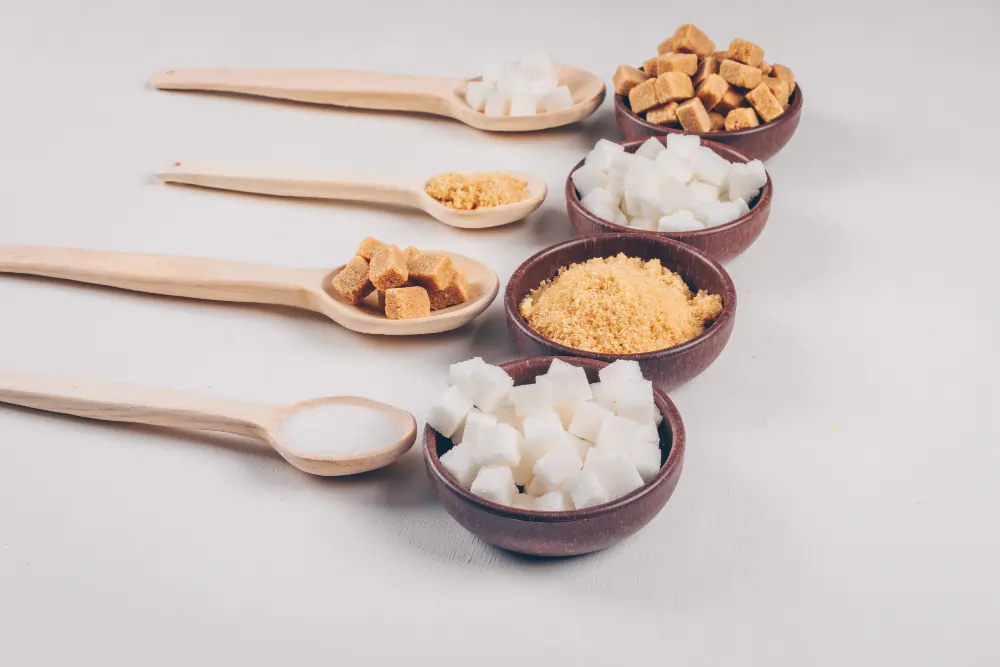
Finding safe sugar substitutes for individuals with diabetes is of utmost importance. With diabetes being a prevalent health condition, managing blood sugar levels becomes a key priority. Traditional sugar, with its high glycemic index, can lead to sudden spikes in blood sugar levels, posing risks for diabetics. Therefore, it is crucial to explore natural and safer alternatives that can provide sweetness without compromising health. In this article, we will delve into various sugar substitutes that are not only diabetic-friendly but also help in maintaining stable blood sugar levels. Let’s explore these alternatives and discover a sweeter, healthier path for individuals with diabetes.
Understanding the Challenge
Traditional sugar can pose significant challenges for individuals with diabetes. The main problem lies in its high glycemic index, which means it is quickly absorbed into the bloodstream, leading to a rapid increase in blood sugar levels. This sudden surge can be problematic for diabetics as their bodies struggle to regulate glucose effectively.
High blood sugar levels can have a profound impact on overall health. It can increase the risk of various complications such as heart disease, kidney damage, nerve damage, and vision problems. Uncontrolled blood sugar levels can also contribute to fatigue, frequent urination, increased thirst, and weight gain.
Effectively managing blood sugar levels is crucial for individuals with diabetes. It helps in preventing complications and maintaining a healthy lifestyle. By exploring and incorporating natural and safer sugar substitutes, diabetics can better control their blood sugar levels, reducing the risk of these health complications and improving their overall well-being.
Exploring Natural Alternatives

When it comes to finding healthier options to satisfy our sweet tooth, natural sweeteners emerge as a promising solution. Derived from plants and fruits, these alternatives offer a sweetness that can be enjoyed by individuals with diabetes without causing drastic spikes in blood sugar levels.
Natural sweeteners such as stevia, monk fruit extract, and erythritol are gaining popularity due to their low glycemic index and minimal impact on blood sugar. Stevia, a plant-based sweetener, has been used for centuries and provides a sweet taste without the added calories or carbohydrates. Monk fruit extract, obtained from a small melon-like fruit, is another excellent choice as it contains natural compounds that deliver sweetness without raising blood sugar levels. Erythritol, a sugar alcohol derived from fruits and vegetables, offers a similar taste to sugar but is absorbed by the body differently, resulting in a minimal effect on blood sugar.
These natural alternatives not only provide a guilt-free way to enjoy sweetness but also offer additional health benefits. Some may even possess antioxidant properties or have a lower calorie content compared to traditional sugar.
By incorporating these plant-based sweeteners into their diets, individuals with diabetes can indulge in a variety of foods and beverages while maintaining stable blood sugar levels. These alternatives provide a safer and healthier path towards enjoying the sweetness of life without compromising on health.
Top Natural Sugar Substitutes

Stevia is a very popular low calorie sweetener.a plant-based sweetener, has gained immense popularity among individuals with diabetes as a safer alternative to traditional sugar. Stevia has zero calories and minimal impact on blood sugar levels, making it an excellent choice for those looking to manage their glucose levels effectively.
Another safe alternative is monk fruit extract, which is derived from a small melon-like fruit. It provides sweetness without raising blood sugar levels, making it a great choice for individuals with diabetes. Monk fruit extract is a natural sweetener, and due to its origin, it is safe for consumption.
Erythritol is another natural sugar substitute that has gained popularity due to its sweetness and negligible calorie content. It has minimal digestive side effects and is considered safe for consumption. Erythritol is a sugar alcohol derived from fruits and vegetables, and its calorie content is significantly lower compared to traditional sugar.
Xylitol, derived from birch trees, is another safe alternative to traditional sugar. It has a sweetness similar to sugar and has negligible effects on blood sugar and insulin when used in moderation. It is essential to note that excessive consumption of xylitol can lead to digestive issues.
Lastly, yacon syrup, which has a low glycemic index, is a natural sweetener that is suitable for individuals with diabetes. It has a natural origin and is considered safe for consumption. Yacon syrup provides a sweet taste without causing a significant rise in blood sugar levels.
Tips for Using Sugar Substitutes
Incorporating sugar substitutes into cooking and baking can be a great way to reduce your sugar intake and still enjoy delicious treats. Here are some practical tips to help you successfully use these alternatives:
1. Start with small quantities: When using sugar substitutes for the first time, it’s best to start with smaller amounts and gradually increase as needed. This will allow you to gauge the sweetness level and make adjustments according to your taste preferences.
2. Follow conversion guidelines: Each sugar substitute may have different conversion ratios compared to traditional sugar. Refer to the packaging or online resources for specific conversion guidelines. This will ensure that you use the right amount of substitute in your recipes.
3. Adjust cooking times and temperatures: Some sugar substitutes can affect the texture and browning of baked goods. To compensate for this, you may need to adjust the cooking times and temperatures slightly. Keep an eye on your treats while they bake and make necessary modifications to achieve the desired results.
4. Combine different substitutes: Experiment with combining different sugar substitutes to achieve the desired taste and texture. For example, you can mix stevia with erythritol or use a blend of monk fruit extract and xylitol. This can help balance flavors and provide a more satisfying sweetness.
5. Be mindful of taste differences: Keep in mind that sugar substitutes may have a slightly different taste compared to traditional sugar. Some may have a slight aftertaste or different flavor profiles. Embrace these differences and explore recipes that complement the unique characteristics of each substitute.
6. Consider the texture: Sugar substitutes may not provide the same moisture and structure as sugar in certain recipes. To maintain the desired texture, you can experiment with adding extra ingredients such as applesauce, yogurt, or mashed bananas to enhance moisture and structure.
7. Read labels and choose quality substitutes: When purchasing sugar substitutes, read the labels carefully to ensure they are suitable for your dietary needs. Look for high-quality products that are free from additives and have been tested for safety.
Conclusion
Choosing safe sugar substitutes for individuals with diabetes is of utmost importance for managing their blood sugar levels effectively. By opting for natural options like stevia, monk fruit extract, erythritol, xylitol, and yacon syrup, diabetics can satisfy their sweet cravings without compromising their health.
These natural sugar substitutes offer several benefits, including zero or minimal impact on blood sugar levels, low-calorie content, and safe consumption. They provide a viable alternative to traditional sugar, allowing individuals with diabetes to enjoy sweetness without the negative health consequences.
It is essential for readers to explore these natural options and make informed choices. By understanding the properties and conversion ratios of different sugar substitutes, they can successfully incorporate them into cooking and baking. Experimenting with combinations and adjusting cooking times and temperatures can help achieve desired results.
Incorporating safe sugar substitutes not only helps diabetics maintain better control over their blood sugar levels but also promotes overall health and well-being. By reducing their sugar intake, individuals with diabetes can lower their risk of complications and improve their overall quality of life.
Therefore, I encourage readers to prioritize their health by exploring these natural sugar substitutes and making conscious choices in their dietary habits. By embracing these alternatives, they can continue to enjoy the sweetness they desire while supporting their diabetic management goals.
FAQs
1. Are sugar substitutes safe for diabetics?
Yes, sugar substitutes can be a safe alternative for diabetics. Natural options like stevia, monk fruit extract, erythritol, xylitol, and yacon syrup have minimal impact on blood sugar levels, making them suitable choices for individuals with diabetes.
2. How do I incorporate sugar substitutes into my baking recipes?
To incorporate sugar substitutes into baking recipes, you can typically substitute them in a 1:1 ratio for sugar. However, it’s essential to follow the specific instructions provided with the sugar substitute you’re using to ensure the best results.
3. What are the potential challenges of using sugar substitutes in cooking?
Some potential challenges of using sugar substitutes in cooking include differences in taste and texture compared to traditional sugar. It may require some experimentation and adjustments to achieve the desired results when using sugar substitutes in certain recipes.
4. Can sugar substitutes affect the taste of my dishes?
Yes, sugar substitutes can have a slightly different taste compared to sugar. However, many sugar substitutes are designed to mimic the sweetness of sugar without the added calories, allowing you to enjoy sweet flavors in your dishes.
5. What are some natural options for sugar substitutes?
Some natural options for sugar substitutes include stevia, monk fruit extract, erythritol, xylitol, and yacon syrup. These alternatives are derived from plants and provide sweetness without the same impact on blood sugar levels as traditional sugar.



 Afrikaans
Afrikaans Albanian
Albanian Amharic
Amharic Arabic
Arabic Armenian
Armenian Azerbaijani
Azerbaijani Basque
Basque Belarusian
Belarusian Bengali
Bengali Bosnian
Bosnian Bulgarian
Bulgarian Catalan
Catalan Cebuano
Cebuano Chichewa
Chichewa Chinese (Simplified)
Chinese (Simplified) Chinese (Traditional)
Chinese (Traditional) Corsican
Corsican Croatian
Croatian Czech
Czech Danish
Danish Dutch
Dutch English
English Esperanto
Esperanto Estonian
Estonian Filipino
Filipino Finnish
Finnish French
French Frisian
Frisian Galician
Galician Georgian
Georgian German
German Greek
Greek Gujarati
Gujarati Haitian Creole
Haitian Creole Hausa
Hausa Hawaiian
Hawaiian Hebrew
Hebrew Hindi
Hindi Hmong
Hmong Hungarian
Hungarian Icelandic
Icelandic Igbo
Igbo Indonesian
Indonesian Irish
Irish Italian
Italian Japanese
Japanese Javanese
Javanese Kannada
Kannada Kazakh
Kazakh Khmer
Khmer Korean
Korean Kurdish (Kurmanji)
Kurdish (Kurmanji) Kyrgyz
Kyrgyz Lao
Lao Latin
Latin Latvian
Latvian Lithuanian
Lithuanian Luxembourgish
Luxembourgish Macedonian
Macedonian Malagasy
Malagasy Malay
Malay Malayalam
Malayalam Maltese
Maltese Maori
Maori Marathi
Marathi Mongolian
Mongolian Myanmar (Burmese)
Myanmar (Burmese) Nepali
Nepali Norwegian
Norwegian Pashto
Pashto Persian
Persian Polish
Polish Portuguese
Portuguese Punjabi
Punjabi Romanian
Romanian Russian
Russian Samoan
Samoan Scottish Gaelic
Scottish Gaelic Serbian
Serbian Sesotho
Sesotho Shona
Shona Sindhi
Sindhi Sinhala
Sinhala Slovak
Slovak Slovenian
Slovenian Somali
Somali Spanish
Spanish Sundanese
Sundanese Swahili
Swahili Swedish
Swedish Tajik
Tajik Tamil
Tamil Telugu
Telugu Thai
Thai Turkish
Turkish Ukrainian
Ukrainian Urdu
Urdu Uzbek
Uzbek Vietnamese
Vietnamese Welsh
Welsh Xhosa
Xhosa Yiddish
Yiddish Yoruba
Yoruba Zulu
Zulu